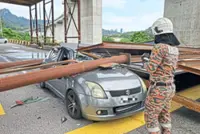IN the past, the Factories and Machinery Department was the enforcement authority for safety in the workplace.
It was responsible for enforcing the Factories and Machinery Act (FMA), which was enacted in 1967. One of the provisions of the Act empowered the Department to conduct periodic inspections and testing on a category of machinery known as certificated machinery.





